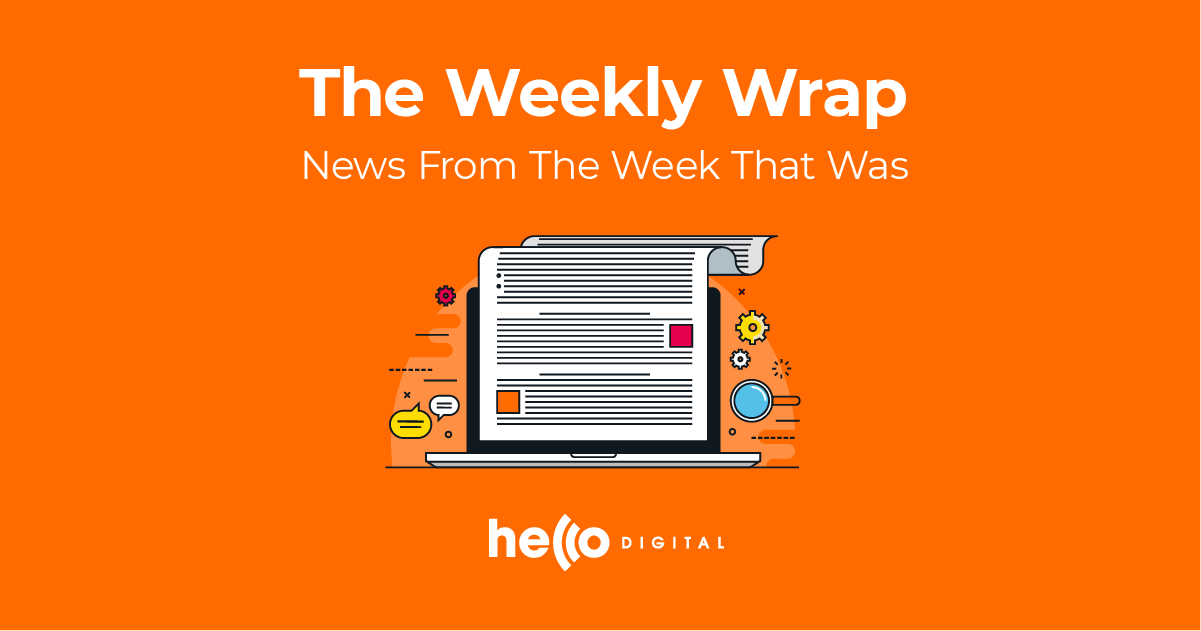Hello Digital looks at the highlights from the week that was.
Australian users were left reeling after Facebook banned viewing and sharing news content on the platform last week, but within days they had reversed the ban. We take a look at Facebook’s about-face, as well as recent updates to Google Image Searches, Google Ads reporting features, and the importance of quality backlinks for SEO in this weeks’ Weekly Wrap.
Keep reading for more…
Update to Google Image Search reduces duplicate images in results
Google announced on Twitter that back in November 2020, it released an update to Google Image Search that reduces the duplicate images in search results. They revealed that they “made an improvement to Image Search to reduce duplicate images, so that we can display others that are relevant yet visually distinct.”
So rather than the same images repeating in search results, Google will now show more images that are “visually distinct” from each other, but are still relevant to your query.
The change was introduced at the end of last year, so users may have already noticed the difference to their image results. Search Engine Land recommends that if your site gets a lot of Google Image Search traffic, you might want to take a look back at your analytics from November onwards to see if there were any substantial changes to your traffic.
Facebook reverses Australia news ban
Last time in The Weekly Wrap we covered the sudden ban on news content for Australian Facebook users on the platform. Less than a week later, Facebook announced that they would be reversing the news ban after negotiations with the Australian government. The about-face happened after the government agreed to change the landmark media bargaining code that they’re proposing. The initial proposal of the code would force Facebook and Google to pay news publishers for displaying their content.
When Facebook introduced the ban last Thursday, they inadvertently blocked information and government pages, including health and emergency services. This caused wide-spread backlash about their decision, with the ban creating shockwaves around the world. Many viewed it as a direct message to the rest of the world against embarking on similar regulations of the technology giant.
The agreement that the Australian government has made to change the media bargaining code would mean that they may not apply the code to Facebook. If Facebook can demonstrate it has signed enough deals with media outlets to pay them for content, they will be exempt from the code. The government has also agreed that Facebook and other platforms which are subject to the code will be given a month’s notice to comply.
It’s clearly a win for Facebook, but we’ll have to see how the practicalities of this agreement play out. Facebook said news content would be restored on user’s newsfeeds in the coming days.
Your total number of website backlinks doesn’t matter to Google
Google has revealed that the total number of backlinks to a website does not matter to the search algorithm at all. Essentially, one good link from a relevant website can be more impactful than millions of low quality links. Google’s John Mueller said in a SEO hangout last week that Google doesn’t look at the number of links to websites. Instead, what matters when it comes to links is how relevant each one is to the website it’s pointing toward.
Mueller stated: “We try to understand what is relevant for a website, how much should we weigh these individual links, and the total number of links doesn’t matter at all. Because you could go off and create millions of links across millions of websites if you wanted to, and we could just ignore them all.”
This is further confirmation that link building should focus on purposeful and relevant links, rather than accumulating sheer volume through black hat link building tactics and the like. In theory, a site could build millions of links across millions of different domains and Google could end up ignoring them all.
So Google’s message is clear to SEOs, quality over quantity is what matters.
Google ads attribution reports will now include YouTube and Display ads
Google Ads users will soon start seeing YouTube and Display attribution data in their reports, giving a clearer picture of the path to conversion. Attribution helps advertisers understand the paths that users take to complete a conversion. It will award credit for final conversions to different ads, clicks, or other factors along the way, so that advertisers can use that data to focus budget on the media or ad having the biggest impact on results.
YouTube and Display ads have now been added to these attribution reports, although they are still in beta phase. If you are eligible, you will be able to opt-in through the Measurement > Attribution section of Google Ads. Then once you have opted in, you’ll be able to see YouTube and Display ads in all attribution reports alongside the current Search ads (including Shopping ads). This is an exciting change for Google ads users who have not been able to see this data in Attribution reports previously, and will allow for a clearer understanding of campaign performance and optimisation possibilities.
You can read all about the new feature in Google’s announcement.
